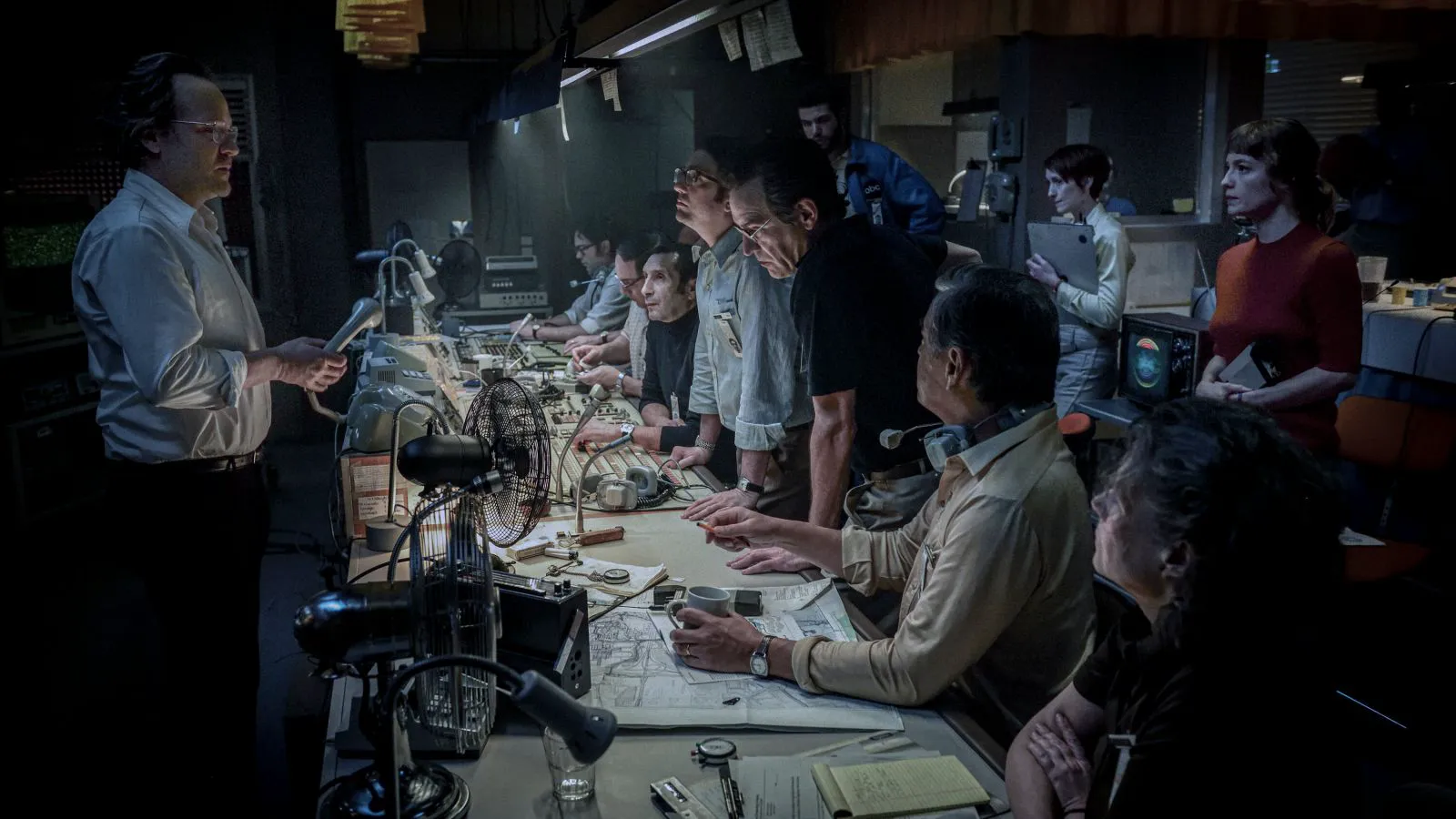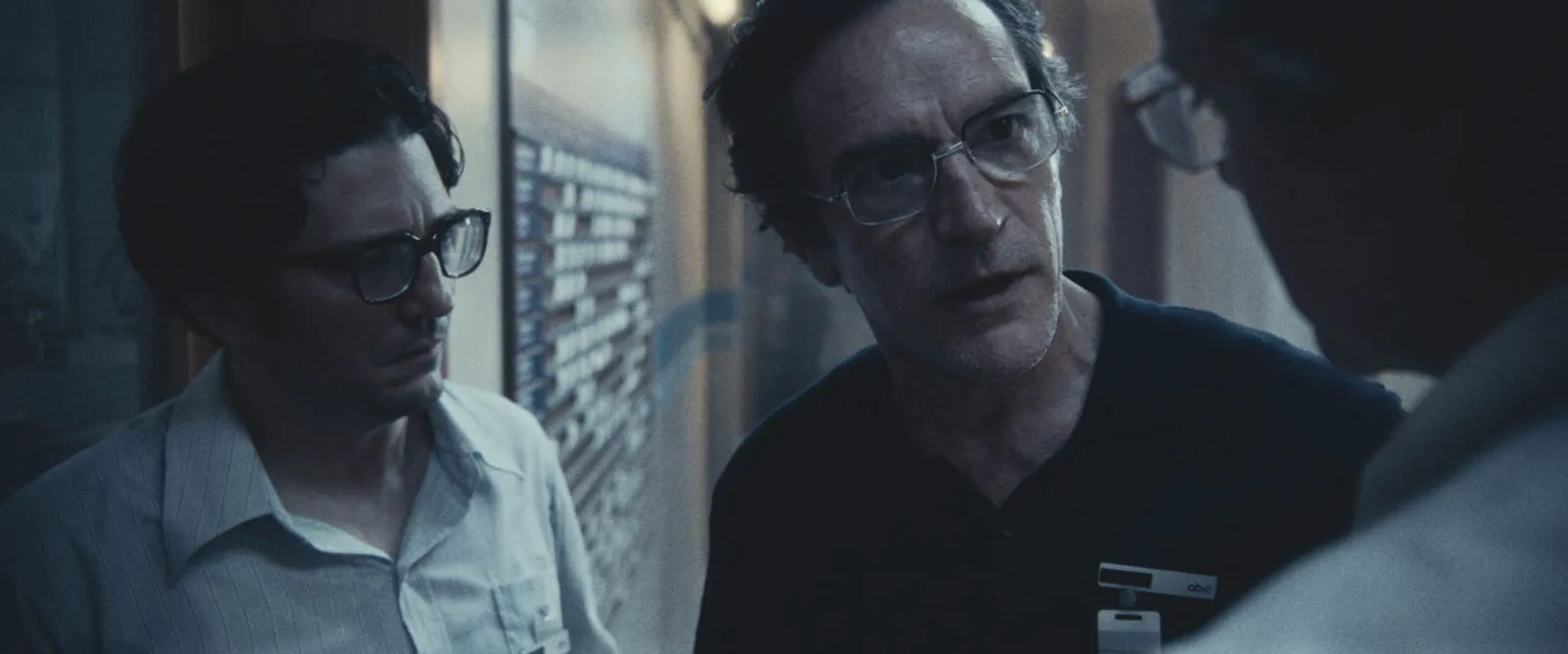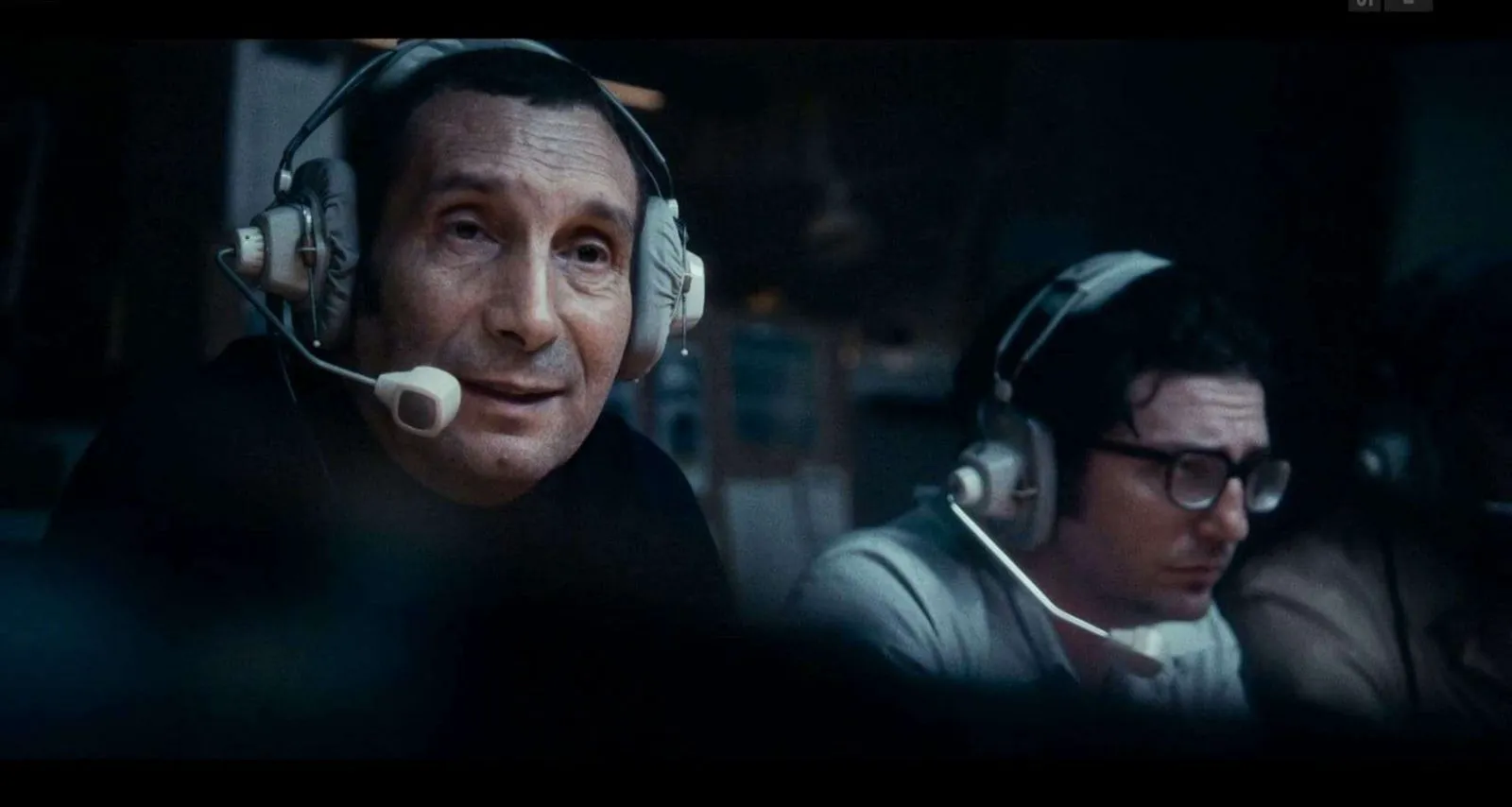In 1972, the world was captivated by the Munich Olympics, broadcast live. However, the games became infamous not for athletic achievements, but for a shocking act of terrorism. Members of the Palestinian organization “Black September” took Israeli athletes hostage, and journalists from ABC’s sports department began a live broadcast from the scene.
A New Perspective on a Tragedy
The 1972 tragedy has been revisited in cinema before, most notably in Steven Spielberg’s “Munich” (2005), which received an Oscar nomination. “September 5th” offers a distinct perspective. While Spielberg focused on the Mossad agents, director Tim Fehlbaum shifts the narrative to the journalists in the studio, thrust into the chaos of reporting a live terror event with no time for reflection.

Peter Sarsgaard as Run Arledge in “September 5th”
“September 5th” premiered at the 81st Venice International Film Festival last August, sparking Oscar buzz. The Academy’s fondness for stories about journalists, exemplified by “Spotlight” winning Best Picture a decade ago, fueled speculation. Ultimately, “September 5th” secured only one nomination: Best Original Screenplay.

John Magaro as Geoffrey Mason in “September 5th”
The Illusion of Peace Shattered
Fehlbaum emphasizes the initial symbolism of the 1972 Olympics as a beacon of peace and change. Just a few kilometers from the competition site lay the horrors of Dachau concentration camp. In Munich, the birthplace of Nazism, the Olympic spirit fostered unity among athletes from around the world. This euphoria masked the impending destruction of that peaceful ideal.

Scene from “September 5th”
The Ethics of Live Reporting
“September 5th” is not solely about the Middle East conflict or post-war Germany. It’s a tense thriller exploring the evolution of modern journalism and its ethical dilemmas. Is it right to broadcast a terrorist attack live? Should journalists prioritize speed over accuracy? Can live coverage hinder negotiations? What takes precedence: ratings or the feelings of the victims’ families? These questions permeate the claustrophobic studio as journalists grapple with critical decisions. The audience is confined within this space, witnessing the debates, the unfolding horror, and the dissemination of information to millions.
“September 5th” excels at conveying the growing sense of fear and panic. Fehlbaum avoids depicting the victims, perpetrators, or special agents, focusing instead on the turmoil within the newsroom. These journalists, accustomed to sports coverage, are suddenly thrust into reporting on terrorism. While the film has its merits, its lack of a strong directorial presence and standout performances may explain its limited Oscar recognition. Nevertheless, for fans of journalistic dramas, “September 5th” offers a compelling exploration of the media’s influence on both individual lives and significant global events.